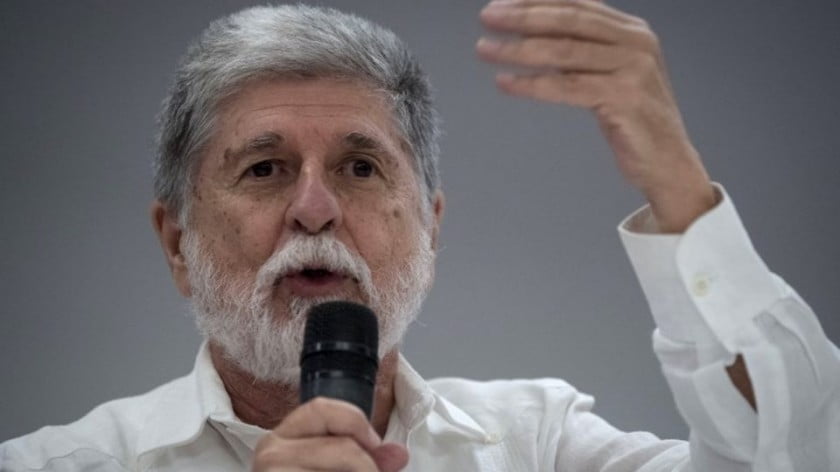Black Sea “Grain Deal” –Wheeling & Dealing 4-Ill Gain and Geopolitical Subterfuge!
I know I am telling you my approximate age to remember the 1973 Soviet-American Wheat Deal, whereby the United States sold substantial amounts of wheat and other feed and food grains to the former USSR. It was a win-win for Russian consumers and US farmers, as they [US farmers] considered themselves as being the breadbasket of the world.
It was indirectly an act of diplomacy that brought the USSR and the US to closer to mutual understanding and collaboration. The expected bumper harvests and overall agricultural productivity in the former USSR is now well known, especially in light of harsh weather in the Midwest of the US, and some other grain producing regions of the world, including much of Western Europe.
Now Russia and Ukraine have taken that title, being in the position to supply ample supplies of grain to much of the world, at normal prices and to guarantee high quality and a continuity of supply. This was the case at least until recently, with the ongoing military conflict in Ukraine, and all the accompanying complications, including acts of terrorism and never-ending recriminations.
But let’s first look at bit of history.
Even before Operation Barbarossa, the Germans realized the importance of securing grain and food commodities from newly occupied territories. It was of little concern if such sourcing meant the starvation of the local population in the black earth regions of Ukraine and Southern Russia. Prior to the Nazi invasion, Germany benefitted economically from the arrangement, with Russia exporting grain and oil in return for manufactured goods.
History is now repeating itself, however, not to such an acute degree, as this process is especially true in Third World countries, now known as the Global South. Matters are complicated all the more with the recent terrorist attack on the Kerch Bridge. The lack of complete fertilizers, (N, P, and K) to many parts of the world, which is a direct result of to Western imposed sanctions on Russia and other imposed barriers to trade.
It should come as no surprise that the Russian Federation is now pulling out of Ukraine grain deal, which lands a potential blow to global food supplies, and it was the likely [intention of Kiev] and its strategic partners, to provoke Russia to walk away.
Otherwise, why to carry out a terrorist attack, and it is alleged that Ukraine used a grain cargo ships to bomb the bridge. The Kremlin has accused the West of turning a blind eye to what it said were a string of “terrorist attacks” committed by Ukraine inside Russia, and it drew attention the silence over a deadly attack on the Crimean Bridge.
Nonetheless, The Kremlin initially said that the attack on the bridge was not related to the suspension of the grain deal. Under its terms and conditions of the agreement, ships from both Russia and Ukraine could use a humanitarian corridor before facing UN inspection at an UN-run hub in Turkey.
Coincidence or not?
But much more is involved in Russia decision, and most likely “those who ordered” the bridge attack realized that there could be a punitive response on Odessa and upon other locations involved in terrorists attacks, planning, staging and providing material support, and having had used grain shipments as a cover for nefarious purposes.
Nonetheless, it is Russia itself which is being painted as having committed a dastardly deed, and the game of recriminations starts again, as the West and Ukraine tries to deflect blame from its latest deeds and concerted efforts to get around the “real intent” and purposes of deflecting attention from the now cancelled grain deal.
Russian President Vladimir Putin has said that the main objective of the deal – supplying grain to countries in need – “has not been realized,” again complaining that Russia faced obstacles exporting its own food. The original grain deal was mostly intended to alleviate food shortages and dampen higher prices facing Africa and poorer countries.
It is especially ironic, pure love him or hate him, you have to admire America’s “chutzpah” when US Secretary of State Antony Blinken says that Russia is using the grain deal “as a weapon”. The allegation itself is most revealing as to the Western agenda has always used food as a weapon of global manipulation, as it was part of its agricultural and foreign policy.
Even those countries most affected, such as South Africa and many other countries with shifting political direction are those who happen to be friendlier and more opened to normalized relations with Russia, as they consider Russian foreign policy more stable and less prone to sudden shifts.
What all is involved?
The fighting in Ukraine since February 2022 resulted in the maritime grain shipments from the Black Sea region. However, grain is still being exported through Poland, Romania and other Eastern European countries, and this has resulted in a glut of grain, depressing local markets, and complicating all the more food security concerns, especially the plight of local farmers. But first to separate the wheat from the chaff – and this involves much more than meets the eye.
Much of the problem is that grain dealers has used the situation to increase their own profits, and dampen the price of local production, “rent seeking behavior,” in agricultural economics language, with Poland being the worst-case scenario, where local prices so low that the government had to restrict imports from Ukraine. Already, Poland and Hungary banned Ukraine grain imports to protect local farmers, or require its transit to be in sealed containers so that it not diverted to flood the local market.
The European Commission, Ukraine accounts for 10% of the world wheat market, 15% of the corn market, and 13% of the barley market. It is also a key global player in the market of sunflower oil. The Food and Agriculture Organization (FAO), which is an entity of the UN … has warned that as many as 47 million people could be pushed into “acute food insecurity….
Swift Reaction to Attack!
Perhaps one the most official and seldom consulted news sources of the mood on the American political scene, regarding Ukraine, is VOA, as it reports how Russia’s decision to leave the Black Sea Grain Initiative, U.S. Secretary of State Antony Blinken has “strong words” for Moscow. Funding for Ukraine survives a hurdle in the House of Representatives and Odessa is targeted by Russian drones and missiles—and a possible direct response to the attack on the Kerch Bridge].
It is worth noting how that much of the grain intended for delivery to countries facing food insecurity was intentionally diverted to for greater profits, mostly to Asia, and by comingling grains for different sources, much was diverted to Western Europe and countries that could pay higher prices. It is worth noting that Russia kept its end of the bargain.
Apparently their double-dealing efforts are being made to divert the blame to the Russian Federation, and it is not just about the withdrawal from the grain deal BUT the main objective involves “fixing the blame” about how much needed fertilizer exports to the global South is in short supply. It should be noted that both Ukraine and Russia are major fertilizer exporters.
The cancellation of the deal means that Russia will no longer provide safe passage guarantees, especially in the part of the black sea where shipments transit. It is clear that Ukraine, foreign missions, and cargo companies were only paying lip service, as their true intentions become obvious. Soon after the Istanbul agreement for transit of Ukrainian food exports were almost immediately transacted on a “purely commercial basics and, until the last moment, were used to serve Kiev and its Western curators’ self-serving interests.
The facts and figures speak for themselves, according to the Russian Ministry of Foreign Affairs. During the time the Black Sea Initiative was in force, a total of 32.8 million tonnes of cargo were exported, of which more than 70 percent (26.3 million tonnes) was shipped to countries with high and higher than average income, including the EU. The low-income countries, notably Ethiopia, Yemen, Afghanistan, Sudan, Yemen and Somalia, received less than 3 percent, or 922,092 tonnes.
We must cultivate our gardens!
It is as if the West is intentionally upsetting the grain deal, and using the Russian reaction like the concluding line, “We must cultivate our garden” from the satirical novel “Candide” written by Voltaire. The inflicted events and subsequent misfortunes is for another purpose, and few are willing to focus on the root causes of what is happening, NATO expansion and using Ukraine and the war to weaken Russia and its leadership.
Stakeholders in grain exports and imports should focus on practical action, the problem, and take collective and personal responsibility. But rather they use recent events as instruments of subterfuge and larger geopolitical agendas.
It is clear that now the Russians will be the scapegoat of convenience, especially for those countries which were not receiving adequate amounts of grain to start with from Ukraine, for obvious reasons, including South Africa and other potential future BRIC countries.
The West and Ukraine, those who “claim” to care so much about civilians and food security don’t hesitate to carry out provocations and attacks on civilian and soft targets, including targeted murders. They operate with a sense of impunity, under the cover of the humanitarian sea corridor and shipping.
Such high concepts, including R2P, are meaningless as the Europeans who buy Ukrainian food at below-market prices and then process it at their own factories for further resale as finished products with high added-value.
In fact, the Westerners make money twice selling and processing grain. In addition, the United States and the EU engage in price gouging, as they create artificial shortages and push Russian agricultural products out of global markets by imposing illegitimate unilateral sanctions.
If the Western capitals genuinely value the Black Sea Initiative, let them seriously consider the fulfillment of their commitments to lift the sanctions on Russian fertilizers and food. Once concrete results rather than promises and assurances are in place, Russia will be ready to consider resuming the deal.
But for now, it is reminiscent of the justification for the sinking of the RMS Lusitania – any ship travelling to selected ports in Ukraine, due to the closure of the maritime corridor, from midnight on July 20th, Moscow time, will “be considered as potential carriers of military cargo” – Russian MOD.
Apparently, Ukraine and its supporters have intentionally enabled Russia to retaliate after the wake of the collapse of the Grain Deal. The rules of war have changed, and Russia is now operating under a war footing, albeit still without declaring an official war. This has given the US and its allies a chance to understand Russia’s more proactive approach in its military operations.
Ukraine claims that the Kerch Bridge was a legitimate target under the rules of war, but this point is irrelevant now. Russia swiftly launched missile and drone attacks on various targets in Odessa, including port facilities, a drone base and a shipyard where drones were assembled, as well as fuel storage facilities.
The rhetoric from both sides is predictable, but much of what Ukraine proffers is far from truthful. Ukraine’s officials claim that Russia’s intent is to starve and harm people. However, Ukraine fails to admit, how Russia has strategically delivered grain and fertilizer for free to countries in desperate need. They imply that the West, on the other hand, has taken advantage of the war to profit from food exports.
It is important to acknowledge that the West has played a role in making foodstuff exports from Russia difficult, with some cases even resulting in near-impossibility. Two key factors are involved: the inability of freight forwarding (shipping) companies to obtain insurance and the barriers t in receiving payments for Russian food supplies.
The reason behind these obstacles is the US-led practice of employing economic sanctions and restrictions, which includes the US blocking the SWIFT payment system for financial transactions involving Russia.
The Black Sea Grain Initiative might currently seem stalled, but not totally dead in the water. However, its implications should prompt us to question as to who are the true culprits causing problems behind the curtain and why Russia is being unfairly targeted.
The UN-brokered agreement appeared to present a facade of fairness, but upon closer examination, it became evident that it heavily favored one side and was destined to be broken from the very beginning. The need for honest discussions surrounding this issue is evident, as it raises real concerns about the motivations and fairness of some of the involved parties.
Observers are growing increasingly frustrated with John Kirby, including myself, as to the rhetoric of the Official spokesman for the US National Security Council, and his misleading representation of the truth regarding Russia’s decision to cancel the grain deal, and its impact on grain prices. Kirby is intentionally disregarding other factors, such as the influence of weather reports on grain production in the US and Europe and manipulations in the grain futures market.
It is important to emphasize the importance of creating a fair and level playing field for exporting food and fertilizer from Russia and Ukraine. However, security and transparency measures must be in place to prevent the misuse of grain cargo ships for aggressive actions against civilians and infrastructure. Under the right circumstances, Moscow might be willing to reengage in the deal in good faith.
It is also necessary to prioritize humanitarian needs over profit and geopolitical interests when determining the destinations of grain shipments. Sending grain to areas where it is most needed should take precedence over maximizing profits or advancing geopolitical agendas for those in the West.
In conclusion
There is an urgent need for honesty, transparency, and fair practices in international grain trade, including speculations, so to foster cooperation and address humanitarian concerns. Grain shipments must be allocated and sent to where most needed, and not where the profits are the highest. It is unfortunate that they are being purposefully delayed by Ukraine and its partners to some region so to increase “the bang for the US geopolitical buck” – and where the political fallout and human suffering is expected to be the greatest in the short-term.







